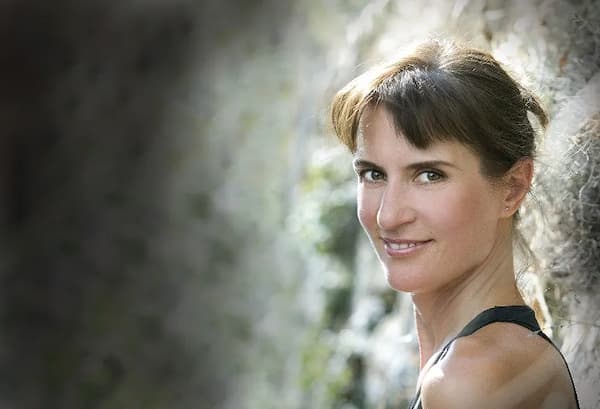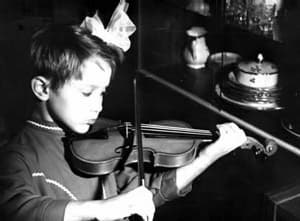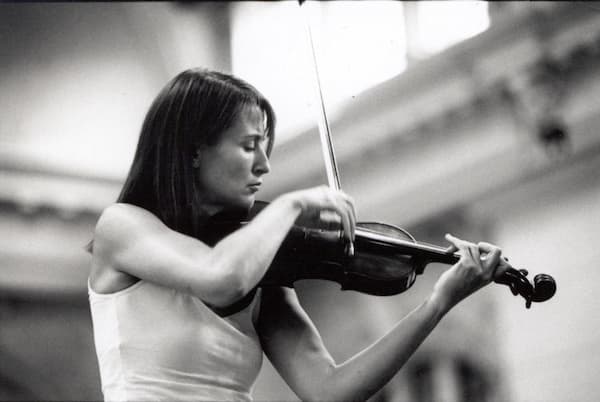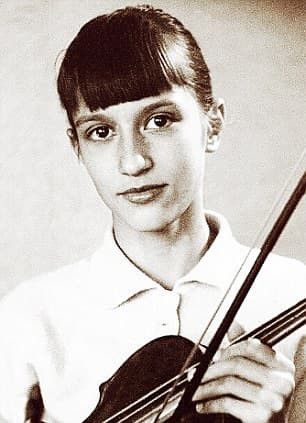Violinist Viktoria Mullova won first prize at the prestigious Sibelius Competition in Helsinki in 1980 and two years later captured the Gold Medal at the Tchaikovsky Competition in Moscow in 1982. Winning at the Tchaikovsky brought her international fame, but the restrictive atmosphere of the Soviet Union became too much, and in 1983, she spectacularly defected to the West. As Margaret Campbell writes, “Mullova is known for her virtuosity and impeccable technique, and for her strongly individual approach to interpretation and the ability to communicate with her audience.”
Viktoria Mullova Plays Bach’s Partita in D minor, BWV 1004 “Chaconne”
Moscow

Viktoria Mullova
Born on 27 November 1959 in Zhukovsky, roughly 45 km from Moscow, Viktoria Mullova started playing the violin at the age of 4. Her first teacher agreed to give her lessons under the condition that one of her parents attended the lessons and followed up at home. Her father, Yuri Mullov, a physicist and engineer at the Central Aerohydrodynamic Institute, took up the challenge and began studying and practising alongside his daughter.
Mullova remembers, “Although he wasn’t particularly musical, he helped me make my sound free and powerful by analysing the shape of my arm, the angle of my elbow, and the position of my fingers. He would watch people like David Oistrakh on the TV, too, and help me to copy them. I was four when I started to play and, although my left hand needed work, by the time I was seven or eight, I knew how to produce a good tone.”
Béla Bartók: Sonata for Solo Violin (Viktoria Mullova, violin)
Mullova Sound

The young Viktoria Mullova
Mullova credits her father for helping her to develop an individual sound. She grew up playing an unremarkable locally made instrument but quickly understood that the sound she produced was part of her unique musical personality, “which I discovered myself, and which is present whichever instrument I play.” As Mullova explains, “many young players break their hearts trying to find an expensive instrument when they could be focusing their energies on finding their own musical voice first, regardless of their instrument.”
Mullova was part of the Soviet system, which gave people from the villages the opportunity to study at the University. As she explained in an interview, “My mother and father both did and were given good jobs. They wanted their children to be educated.” Mullova understood that she had great talent, but practising was still very hard work. In addition, she didn’t like carrying the violin around because people could immediately see that she was different.
Viktoria Mullova Plays Tchaikovsky’s Violin Concerto in D Major, Op. 35
Moscow Conservatory

Her long hours of practising paid dividends, and she began studies at the Central Music School in Moscow with Volodar Bronin, a student of David Oistrakh. Subsequently, she entered the Moscow Conservatory and studied with Leonid Kogan. Meeting foreign students opened up her horizons to new musical worlds. When she won the Sibelius competition in Helsinki, she used some of her prize money to buy recordings of the Bee Gees, Barbara Streisand, Pink Floyd, Herbie Hancock, and Santana.
Records of Western popular music were banned in the Soviet Union, and “everything was new to me. It was 1980, and I hadn’t even heard of the Beatles.” Mullova remembers the whole experience of the Soviet quasi-religious state-sponsored musical education as an “overly stressful nightmare full of hypocrisy. Naturally, I have never believed in communism. But everything was a play. I knew I wanted to leave, and I was pretending to be a naïve girl.”
Erroll Garner: Misty (Viktoria Mullova, violin)
Defection

Mullova’s escape reads like a thriller from the days of the Iron Curtain. As she explained, “it took me one year to plan the trip, to plan how to escape.” It was difficult to get out. They always made sure that if you left, one member of the family had to stay behind.” When the Government approved a series of recitals in Finland, Mullova hatched a plan with her boyfriend Vakhtang Jordania, a conductor of the Kharkov Symphony in Ukraine.
Jordania pretended to be Mullova’s accompanist, which was not a great idea since Jordania’s pianistic inexperience almost gave them away. At any rate, always watched by KGB officers, Mullova pretended to be sick from drinking too much, and the couple was driven across the border to Sweden by a journalist and photographer. As the American embassy was closed over the weekend of the Fourth of July, they had to hide in a safe house without food for three days. Two days later, however, they arrived in Washington D.C. with American visas in their pockets.
For more of the best in classical music, sign up for our E-Newsletter
